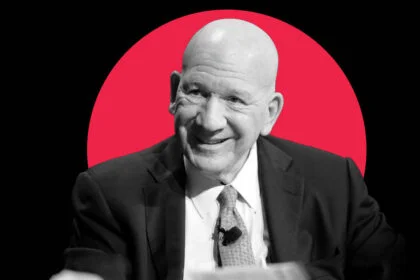After the death of a loved one, understanding how to become power of attorney after death can be daunting, especially when it comes to managing their affairs. One common misconception is that a power of attorney (POA) can be established after death. This blog post will clarify this topic, explaining the role of POA, what happens after death, and how to manage a deceased person’s estate effectively. Understanding these aspects is crucial for ensuring a smooth transition and honoring the deceased’s wishes.
Understanding Power of Attorney
A power of attorney is a legal document that grants an individual (the agent) the authority to act on behalf of another person (the principal) in various matters, such as financial or medical decisions. However, it’s important to note that a POA is only valid during the principal’s lifetime and becomes void upon their death[1].
Types of Power of Attorney
- Durable Power of Attorney: Continues to function even in the event that the principal loses mental capacity.
- Non-Durable Power of Attorney: Expires in the event that the principal is rendered incapable.
- Springing Power of Attorney: Becomes effective only under specific conditions, such as the principal’s incapacitation.
- General Power of Attorney: Grants broad powers to the agent.
- Financial Power of Attorney: Allows the agent to manage financial matters.
- Medical Power of Attorney: Permits the agent to make healthcare decisions[2].
What Happens to Power of Attorney After Death?
Upon the principal’s death, the authority granted by a POA ceases. The responsibility for managing the deceased’s estate typically falls to the executor named in the will. If there is no will, the court designates an administrator to manage and settle the estate[3].
Real-World Examples and Case Studies
Consider the case of John, who was named as his mother’s POA. Upon her death, John’s authority as POA ended, and he had to transition to his role as the executor of her will. This shift required John to navigate probate court, manage her assets, and ensure her debts were paid. This example highlights the importance of understanding the limitations of a POA and the subsequent steps required after the principal’s death.
Insights from Experts
According to estate planning attorney Jane Doe, “A power of attorney is a powerful tool during a person’s lifetime, but it’s crucial to have a comprehensive estate plan that includes a will or trust to ensure smooth management of affairs after death.” This sentiment is echoed by financial advisor John Smith, who emphasizes the importance of proactive estate planning to avoid legal complications and ensure the deceased’s wishes are honored[4].
Practical Tips and Actionable Advice
- Create a Comprehensive Estate Plan: Include a will or trust to outline your wishes and appoint an executor.
- Understand the Limitations of POA: Recognize that a POA is not valid after death and plan accordingly.
- Communicate with Family Members: Ensure your loved ones are aware of your estate plan and the roles they may need to assume.
- Consult with Professionals: Seek advice from estate planning attorneys and financial advisors to create a robust plan.
Understanding the limitations of a power of attorney and the steps required to manage an estate after death is crucial for anyone involved in estate planning. By preparing in advance and seeking professional advice, you can ensure a smoother transition and avoid potential legal complications.
What are the legal requirements for creating a will?
Creating a legally valid will is crucial for ensuring your wishes are respected after your death. Here are the key legal requirements:
- Age and Mental Capacity: The testator (person creating the will) must be at least 18 years old and of sound mind. This means they must fully understand the nature of their assets, the identity of their beneficiaries, and the implications of their decisions[6] [7].
- Written Document: The will must be in writing. While some states accept handwritten (holographic) wills, most require a typed document[8].
- Signature: The testator must sign the will. If the testator is unable to sign, they can direct someone else to sign on their behalf in their presence[9].
- Witnesses: The will must be signed in the presence of at least two witnesses who are not beneficiaries. These witnesses must also sign the will to confirm that they observed the testator signing it[7] [8].
- Notarization: While not always required, notarizing a will can help prevent disputes and simplify the probate process[9].
- Clear Intent: The will must clearly state that it is the testator’s intention to distribute their assets according to the document[8].
- Revocation of Previous Wills: The will should include a statement revoking any previous wills or codicils to avoid confusion[9].
What happens if someone dies without a will?
When someone dies without a will, they are said to have died “intestate.” This situation triggers a legal process called intestate succession, where state laws determine how the deceased’s assets are distributed.
Here’s an outline of what generally takes place:
Intestate Succession Process
- Probate Court Involvement: The estate goes through probate court, which oversees the distribution of the deceased’s assets. The court appoints an administrator to manage the estate.
- Distribution of Assets: State intestacy laws dictate how assets are distributed. Generally, the hierarchy is as follows:
- Spouse and Children: If the deceased was married, the surviving spouse usually receives a significant portion, if not all, of the estate. If there are children, the estate is typically divided between the spouse and children.
- Other Relatives: If there is no spouse or children, the estate may go to parents, siblings, or more distant relatives.
- State: If no relatives can be found, the estate may escheat to the state.
- Non-Probate Assets: Some assets, like life insurance policies, retirement accounts, and jointly owned property, pass directly to named beneficiaries or co-owners and are not subject to intestate succession.
Real-World Example
Consider the case of Sarah, who died without a will. She was unmarried and had no children. Her estate included a house, a car, and some savings. According to her state’s intestacy laws, her assets were distributed to her surviving parents. If her parents had predeceased her, the assets would have gone to her siblings.
Practical Tips
- Create a Will: To avoid intestate succession, create a will that clearly outlines your wishes.
- Update Beneficiaries: Ensure that beneficiary designations on accounts and policies are up to date.
- Consult an Attorney: Seek legal advice to understand the implications of intestate succession in your state.
Dying without a will can lead to a lengthy and potentially contentious probate process. By creating a will and keeping it updated, you can ensure that your assets are distributed according to your wishes and provide clarity for your loved ones.
FAQ
Can I become a power of attorney after someone dies?
No, a power of attorney is only valid during the principal’s lifetime and becomes void upon their death.
What happens if there is no will?
If there is no will, the court appoints an administrator to manage the deceased’s estate.
How can I ensure my loved one’s wishes are honored after their death?
Create a comprehensive estate plan that includes a will or trust and appoint an executor to manage the estate.
What is the role of an executor?
The executor is responsible for managing the deceased’s estate, including paying debts, distributing assets, and navigating probate court.
Should I consult with professionals for estate planning?
Yes, consulting with estate planning attorneys and financial advisors can help create a robust and effective estate plan.
FinanceTrump uses only high-quality sources, including peer-reviewed studies, to support the facts within our articles. Read our editorial process to learn more about how we fact-check and keep our content accurate, reliable, and trustworthy. Some content in this post may have been created using artificial intelligence; however, every blog post is [reviewed] by at least a human editor.













